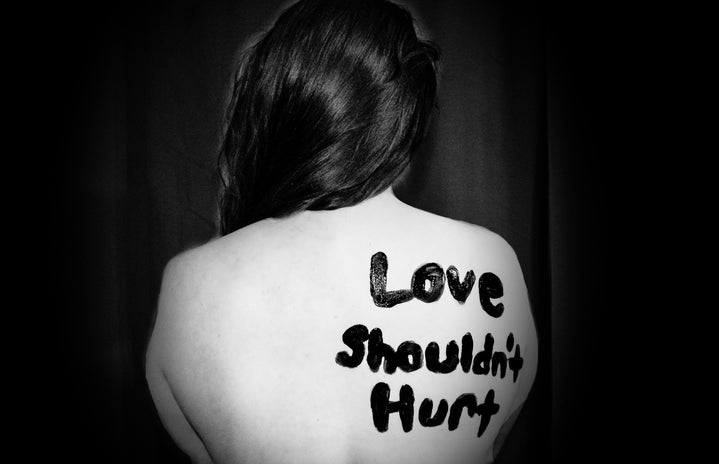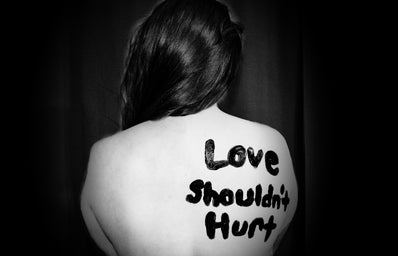[cw: relationship abuse, violence, manipulation, etc. Please read with caution.]
“What is love?”
When he doesn’t drive away before making sure I make it back inside my apartment safely.
When she plays with my little siblings as if they’re her own.
When they make time for me, even though they’re the busiest person I know.
These are three responses I received from some of my closest friends when I asked them “What is love?” It’s the age-old question. The answers always vary depending on who you ask. Sure, we may agree on certain definitions of romance, affection, and love, but the chances of receiving the same word-for-word responses are slim.
Our definitions transform as we mature from childhood to adulthood. That’s what differentiates infatuated puppy love from the love that endures and challenges us. Think about it. When you’re thirteen, love looks like the boy you’ve been crushing on asking you to the eighth grade formal. When you’re sixteen, it looks like laughing the night away with your closest friends, relishing in being young and carefree. When you’re twenty-one, it looks like turning inward and focusing on the person you’re becoming, taking intentional time to explore the complexities of your heart and mind. But no matter what stage of life you might be in, it’s important to realize what love is not.
There’s a particular verse from the Bible I’ve carried with me for years. It goes like this:
“Love is patient, love is kind. It does not envy, it does not boast, it is not proud. It is not rude, it is not self-seeking, it is not easily angered, it keeps no record of wrongs. Love does not delight in evil but rejoices with the truth. It always protects, always trusts, always hopes, always perseveres. Love never fails.” 1 Corinthians 13.
Regardless of whether or not you consider yourself religious or even spiritual, I believe that these words hold truth. Not in a preachy sense, and not even necessarily through a Christian lens. I believe that these words hold meaning because of what they say about the nature of love. That love is an inherently good force— that it is meant to do the exact opposite of harm.
I grew up on these words, but it was not until I was on the brink of leaving a toxic and emotionally abusive relationship that I was able to truly hear them. I remember the exact moment it all began making sense for me. It was the middle of my nineteenth February, and for some reason, I had dragged myself to church that morning after months of feeling disconnected from myself. I had since abandoned my faith— in myself, in God, in others, even in love itself.
But it didn’t happen overnight. I stopped believing in love slowly, over the span of months.
It’s okay that he made me cry tonight. I deserved that.
He called me a bad name. But it’s fine. I made him mad.
I didn’t want to do that, and I told him no, but he didn’t listen.
I’m sorry. I’m sorry. I didn’t do anything wrong, but I’m still sorry.
I want you to know something.
Real love does not make you apologize for nothing. Real love isn’t supposed to hurt. Sure, it can hurt to love someone. I’ve been in a primarily long distance relationship for almost two years now, and some nights the loneliness feels impossible to bear. But that kind of hurt— that kind of longing—is different from the kind of hurt that comes from the person you love. Someone who claims to love you will never go out of their way to wound you, even for a cheap joke. They will never call you names, feed you hollow promises, guilt-trip you to make up for their own failures, or manipulate you until you’re weak enough for them to take what they want from you.
Real love is not take, take, take.
Real love is give. Real love is I’m listening. Real love is I only want to do what you’re comfortable with, and nothing more. Real love is when the words aren’t just words, but actions.
If you’re in a relationship that makes you feel like you’re constantly tiptoeing around eggshells, afraid to make any sort of disturbance, I urge you to reach out to someone you trust. You deserve better than living in fear. If you’re terrified that breaking free of this person will lead to catastrophic events, I promise you that there is goodness waiting for you on the other side. Real love wants you. Real love is waiting for you. Real love lives on the other side of fear.
Trust me, I didn’t believe it either.
But now I’m there. And learning about what love is not has led me to learn what love actually is. It’s beautiful—so inexplicably beautiful— and I want you to see it for yourself.
————
[If you are in immediate danger, call 9-1-1. For anonymous, confidential help, 24/7, please call the National Domestic Violence Hotline at 1-800-799-7233 (SAFE)]



